
You are reading:

You are reading:

30.10.25
7 minutes readA year after the most devastating DANA (torrential storm) in Spain’s history, we return to ground zero in Valencia to meet Mamadou, a young man from Guinea-Conakry who had been living in Torrent for less than a year when the torrential rains flooded the town. Thanks to the Nova Feina Foundation – an organisation that is part of the Incorpora programme, which focuses on social and employment integration – he now has a job that not only brings stability to his life, but also allows him to contribute to rebuilding the area.
The 2024 storm left the region of L’Horta Sud among the hardest hit areas of Valencia. A year on, life there moves at two different speeds: that of the reconstruction works, which are frantically restoring normality to infrastructures, and that of the people, who are slowly trying to regain their peace of mind and rebuild their daily routines to take back control of their lives.
“It’s been a very tough year for the local population,” says Vanessa Fernández, head of Social and Employment Integration Programmes at the Nova Feina Foundation, which is part of the Incorpora network, the social and employment integration programme of the ”la Caixa” Foundation. “Although the situation in the towns has improved, many structures are still damaged,” she adds.
Based in Catarroja and Quart de Poblet, Nova Feina acts as a bridge between companies in search of talent and people in vulnerable situations who are looking for work. However, after the torrential rains the organisation had to redirect its efforts, initially and with support from the ”la Caixa” Foundation’s emergency funding call, towards humanitarian aid.
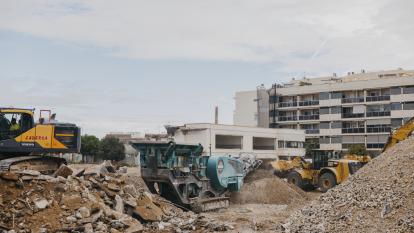
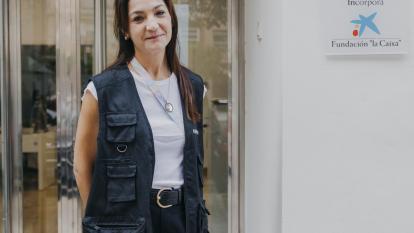
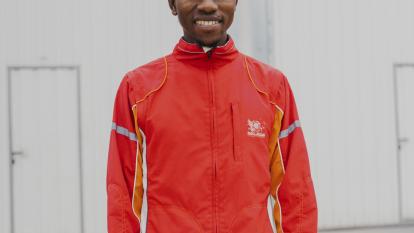
When the intense weather event storm devastated Valencia, 24-year-old Mamadou, originally from Guinea-Conakry, had been in Spain for less than a year. He was living in shared accommodation and relied on support from a parish charity for his daily needs.
From one day to the next, the emergency cut off vehicle access to the town and food supplies stopped arriving. “I was alone, with no food, no help. Cars couldn’t get through the streets,” he recalls.
Referred to the Nova Feina Foundation’s office in Catarroja by the parish organisation, he received help during the emergency phase to cover basic needs like clothing and hygiene, as well as support with his legal regularisation process.
Later, when it emerged that he had experience in the construction sector in his home country, Nova Feina worked with him to design a personalised pathway into employment and social integration. It began with his participation in several training courses in painting, building and electrical work, among others in the same field.
“Throughout his training journey, the young man showed great commitment, especially when it came to learning the language, which was one of his main barriers,” says Fernández. “I didn’t speak Spanish very well. But people were really kind and patient with me,” Mamadou explains.
He later completed his work placement on a team rebuilding damaged infrastructure, “with excellent performance”, which enabled him to secure a job in the sector.
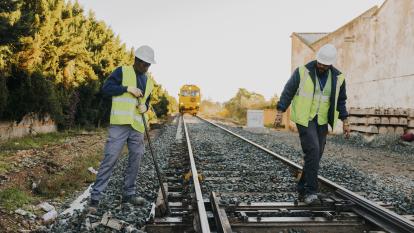
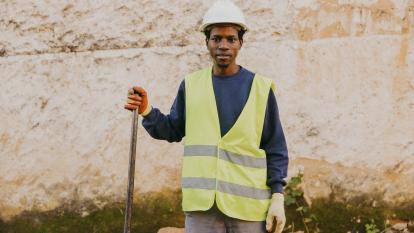
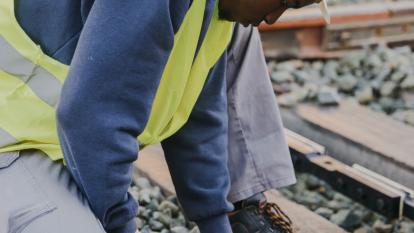
Today, with his legal status regularised, Mamadou continues his training while working for two renovation and construction companies. His work mainly involves repairs to homes and business premises affected by the storm in towns such as Paiporta, Picanya and Aldaia. “Being part of this process of rebuilding the area where he lives has helped him feel better and gain self-esteem,” the coordinator emphasises.
Now, the young man is trying to build a stable future and leave the past behind. “It was very sad and very terrible. I don’t want to remember it. People had a really hard time. But I’m happy because my situation has improved since then. Thanks to Nova Feina, I have a job, my own room and food, I can sleep peacefully, and maybe even save a bit of money in case I fall ill or something happens, since I don’t have any family here,” he says. His next goals: to help his loved ones back in Guinea as soon as he can and, in the future, to start a family of his own in Spain.
Since April, social services have referred 273 people to Nova Feina’s office in Catarroja. Including its work in Quart de Poblet, the organisation has supported over 500 people in 2025.
Of these, 251 are taking part in the Incorpora programme run by the ”la Caixa” Foundation, and 107 have secured jobs in 58 partner companies. “Not everyone is ready to begin the job placement process straight away,” explains the employment advisor. “Some people still need to build up their confidence and sense of security.”
Fernández explains that families have endured intense stress and a heavy bureaucratic burden this year as they have tried to recover their homes. “People have been extremely busy. It’s only now that mental health issues are beginning to surface,” she warns.
“The business, social and community fabric was completely destroyed, so rather than focusing on employment integration, we’ve first had to concentrate on social recovery.” Her team has prioritised giving people a point of reference, a friendly hand or simply someone to talk to.
Now, Nova Feina’s roadmap is focused on the medium term: its goal for 2026 is to concentrate on revitalising the local economy. “We need to move on to the next phase,” Fernández admits. Their strategy: to help companies with damaged infrastructure and disrupted workforces to find talent so they can resume their activity. “They’re talking about a minimum recovery period of five years,” she says.
A year ago, the ”la Caixa” Foundation launched an extraordinary plan worth more than five million euros to support people affected by the DANA. The initiative was implemented in two phases, emergency and recovery, and focused on four main areas of action: emergency relief, social inclusion, health, and support for children.
A year after the event, the commitment remains firmly in place, with the aim of contributing to the wellbeing and recovery of the communities most affected by the disaster. For this reason, this year 2025, the ”la Caixa” Foundation has increased the funding for the call for Social Projects in the Valencian Community by one million euros, in order to continue supporting the social organisations working in the hardest-hit areas and actively contributing to recovery efforts. This additional funding will make it possible to support 27 more projects focused on addressing needs arising from the storm. Several of the organisations leading these initiatives also took part in last year’s special call to address the Dana emergency, which had a final allocation of 1.8 million euros.
Within the Incorpora programme, work is progressing on three fronts: training for the most vulnerable groups – with a focus on trades linked to repairing the region and its infrastructure; promoting self-employment – by offering advice to small businesses on how to access public funding; and job placement – building bridges between companies and people with talent.
Alongside Nova Feina, the work in Valencia is carried out in collaboration with other social organisations active on the ground: Pactem Nord, ADSIS Valencia, Novaterra, EIFOR-Xabec, Asprona and Fundación María Auxiliadora.
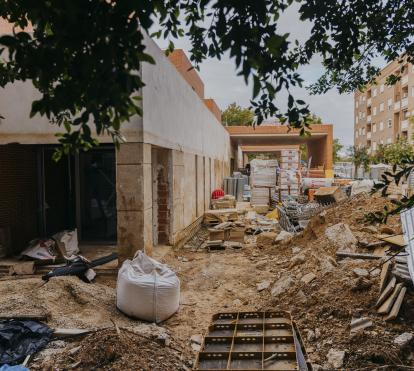
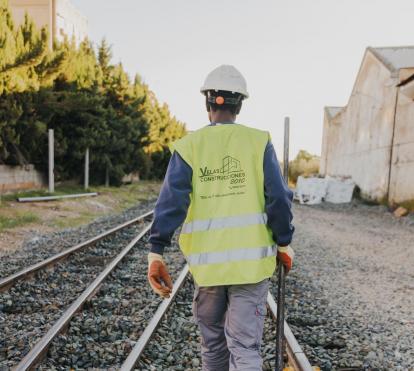
A year later, there is still much to be done in the DANA’s ground zero, but thanks to the efforts of the organisations and businesses in the Incorpora network, L’Horta Sud is beginning to stitch its social and economic fabric back together. The region’s reconstruction will be measured not only in metres of rebuilt infrastructure, but also in the life stories that are being restored along the way, like Mamadou’s, which for now stands as proof that it can be done.